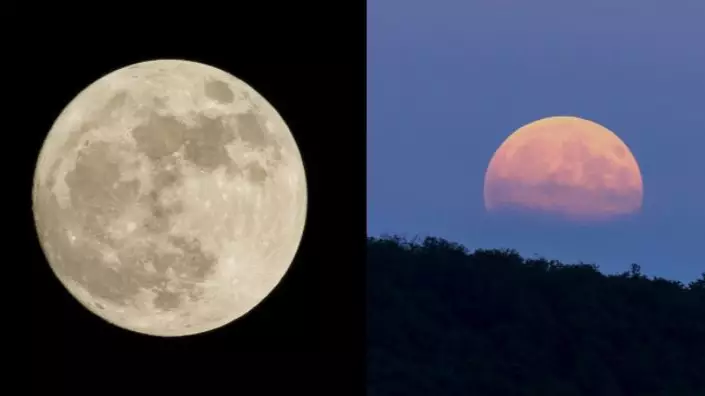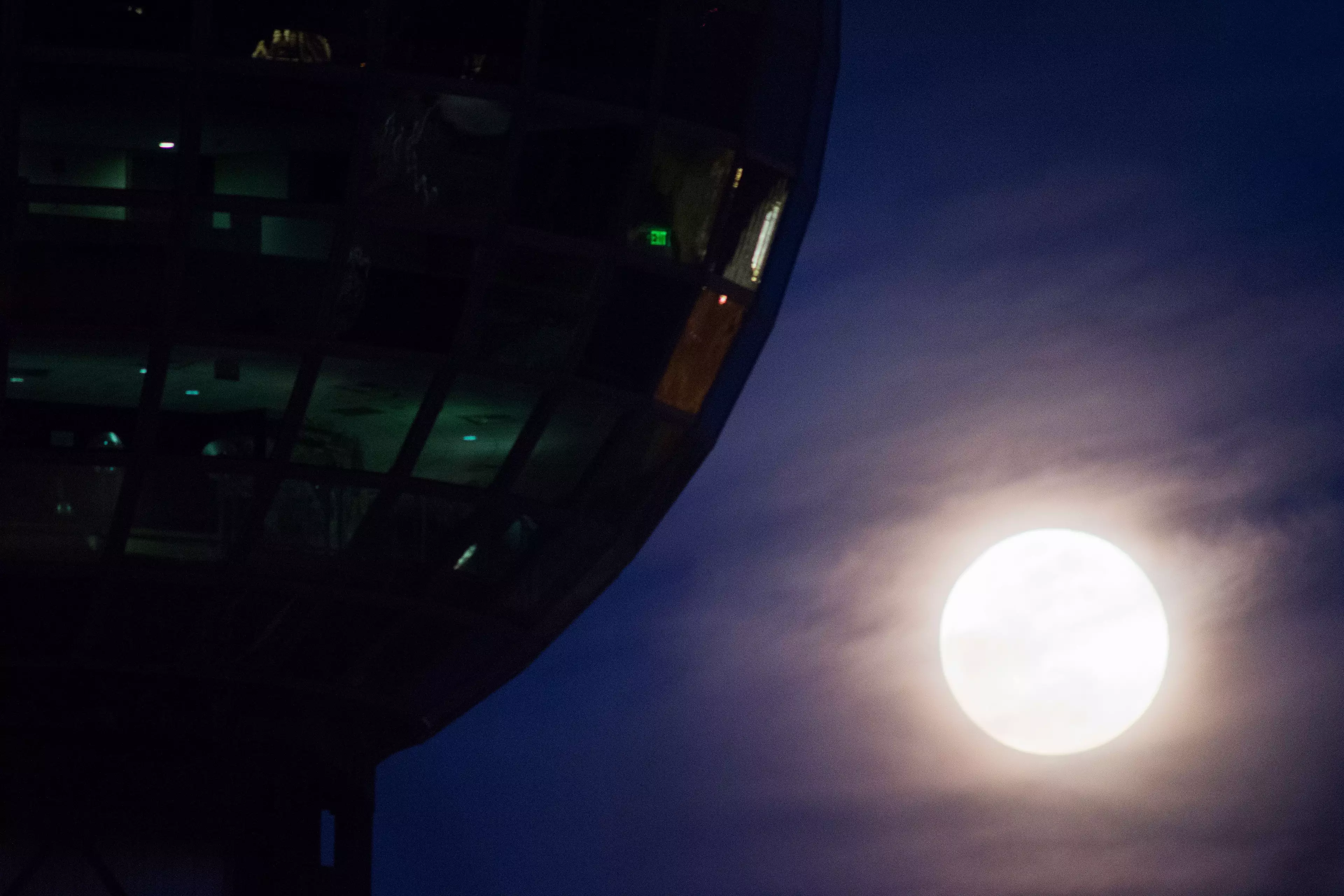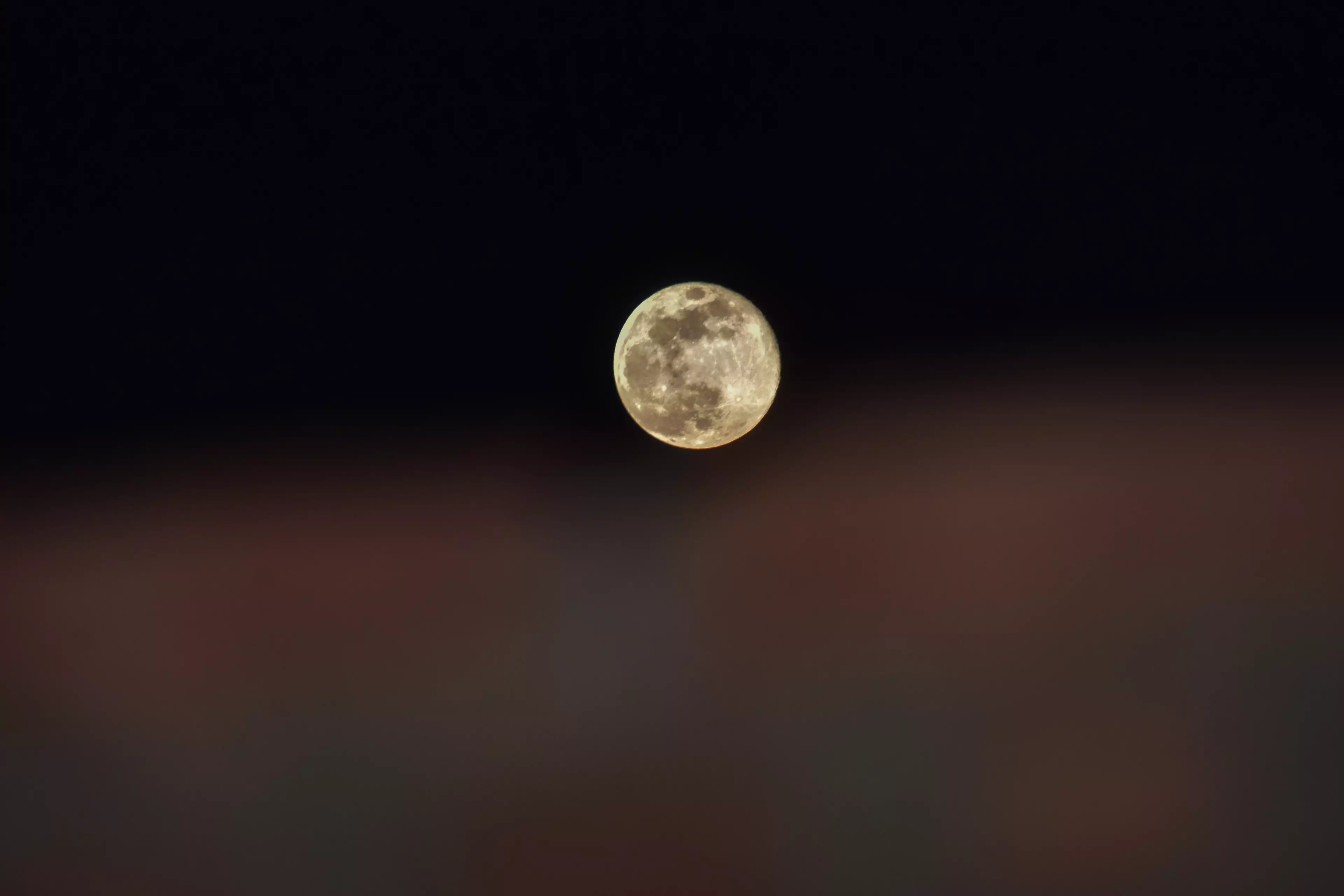
Good news for stargazers, because you'll be able to get a chance to see the first super moon of the night tonight over the UK.
As they've all got their own names corresponding to the time of year that they occur, tonight's celestial spectacular is known as the 'Super Worm Moon'.
It's a full moon, and it's going to be really close to earth, meaning that the moon will appear significantly larger, earning it's 'super moon' tag.
It should appear 14 percent bigger and will be much brighter than usual, on account of it being closer.
Depending on what cloud and weather conditions you have in your area, you should be able to get a good look at it after the skies go dark an hour later than usual.

If you're planning on getting out a telescope or a camera to take some shots of the super moon, you'll be best off doing so in the early hours of tomorrow morning, when the night is at the darkest.
Of course, as we've briefly covered above, you'll need to remember to set your clocks forward an hour, as that all changed overnight last night, remember?
Does anyone really have to do that anymore in a world of mobile phones and connected devices?
Anyway, you might wonder where it gets the strange name from. It's simply because the earthworms of the world - or the northern hemisphere, anyway - start to emerge around springtime as the temperatures start to rise.
Advert
Speaking to the Mirror, Royal Observatory astronomer Emily Drabek-Maunder explained: "Traditionally, monthly full moons are named from Native American tradition, but many also have Anglo-Saxon and Germanic origins.
"From those different origins, the March full moon has also been called the chaste moon, death moon, crust moon and even the sap moon after sap flowing from sugar maple trees."

If you miss this super moon, there will be other opportunities to catch others throughout the year, with the Super Pink Moon, Super Flower Moon, and Super Strawberry Moon due to occur in April, May, and June.
So, find yourself some high ground, make sure that the night sky is clear, and attempt to find somewhere with as little light pollution as possible, if that's near to where you live.
If you're staying indoors, head to the top floor and turn off all the lights so that you can see it better.
Happy stargazing, folks.
Featured Image Credit: PATopics: Weather, UK News, Interesting, space